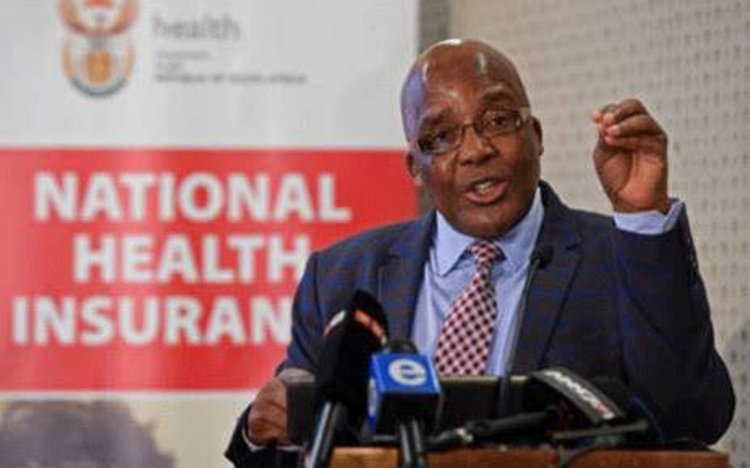Motsoaledi Calls for Africa to Fund Its Own Health Systems Amid Donor Cuts
Motsoaledi highlighted that the defunding and underfunding of African health systems undermines progress made toward universal health coverage (UHC) and improved public health outcomes.

- Country:
- South Africa
South Africa’s Health Minister, Dr Aaron Motsoaledi, has called on African nations to strengthen their own capacity to finance health systems, stressing the need for greater self-reliance in the wake of declining international donor support.
Speaking at the opening of the 75th session of the World Health Organisation (WHO) Regional Committee for Africa, Motsoaledi warned that the recent withdrawal and reduction of external funding posed a major risk to health gains across the continent.
Donor Cuts Threaten Progress
Motsoaledi highlighted that the defunding and underfunding of African health systems undermines progress made toward universal health coverage (UHC) and improved public health outcomes. The United States, through the President’s Emergency Plan for AIDS Relief (PEPFAR), had long been one of the largest donors to South Africa’s HIV/AIDS programmes. However, recent cuts in U.S. foreign aid have reduced funding available to support nonprofits and frontline services across the continent.
“The defunding and underfunding of our health systems threaten and undermine any progress that we might have made in strengthening health systems and achieving universal health coverage. In light of this, South Africa wishes to reiterate and emphasise the importance of self-reliance in financing our health systems,” Motsoaledi said.
Domestic Resource Mobilisation
Motsoaledi underscored that primary responsibility for the health of citizens rests with member states themselves. While international solidarity remains valuable, he said it cannot substitute national accountability.
“While international solidarity is very precious and appreciated, in today’s uncertain world, the primary responsibility of taking care of the health of citizens lies with member states and no one else,” he told delegates.
South Africa, he explained, is promoting enhanced domestic financial resource mobilisation through the fiscal system and is exploring innovative financing mechanisms to ensure that health systems are both resilient and responsive to people’s needs.
WHO-AFRO and Regional Priorities
The WHO Regional Office for Africa, headquartered in Brazzaville, Congo, represents 47 member states. At the Lusaka gathering, ministers are discussing pressing health challenges, endorsing resolutions, and strengthening health diplomacy across the region.
Motsoaledi aligned South Africa with the committee’s key priorities, including:
-
Accelerating improvements in the health and well-being of women, children, and adolescents.
-
Strengthening Africa’s health security to withstand epidemics and global health shocks.
-
Advancing universal health coverage with primary healthcare as the foundation.
He praised the WHO Africa Region for its achievements despite financial constraints, noting that the organisation had supported all 47 member states in advancing UHC goals. However, he cautioned that sustainability of financing remains the weakest link.
“We are concerned that in advancing these plans, there is a paucity of debate regarding how our efforts are going to be financed sustainably,” he said.
Health Financing and the SDGs
With just five years left to achieve the 2030 Sustainable Development Goals (SDGs), Motsoaledi urged African countries to urgently prioritise health financing reforms. He stressed that without adequate funding, progress on UHC and other health targets could stall or even reverse.
“By doing so, we can reduce our dependence on external funding and ensure that our health systems are resilient and responsive to the needs of our people,” he said. “Let us work together to strengthen our health systems, promote universal health coverage, and ensure that our people have access to quality healthcare services without experiencing financial hardships.”
Regional Leadership and Solidarity
Motsoaledi also used the opportunity to congratulate Zambia for assuming the chairship of the WHO Africa Region and commended the newly appointed Regional Director, Professor Mohamed Yakub Janani, for his leadership.
“We look forward to working with him and appreciate his leadership in advancing health agendas in our region,” he said, adding thanks to Zambia for its hospitality in hosting the session.
Towards Self-Sustaining Health Systems
Motsoaledi’s remarks reflect a broader shift in African health policy thinking — moving away from donor dependency toward self-sustaining national health systems. While international support remains welcome, the consensus is growing that Africa’s future health resilience will depend on domestic investment, regional solidarity, and innovative financing models tailored to African realities.










